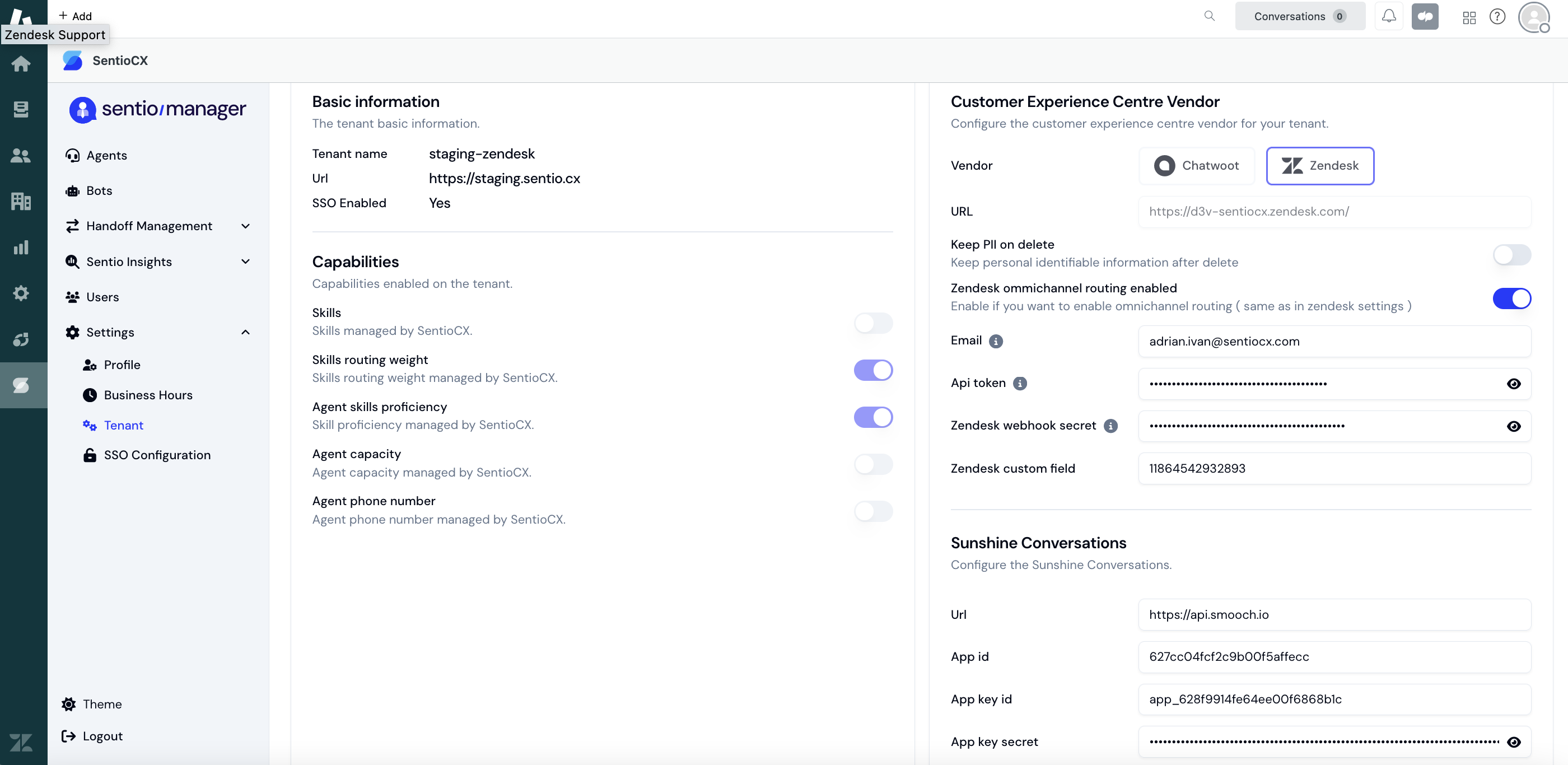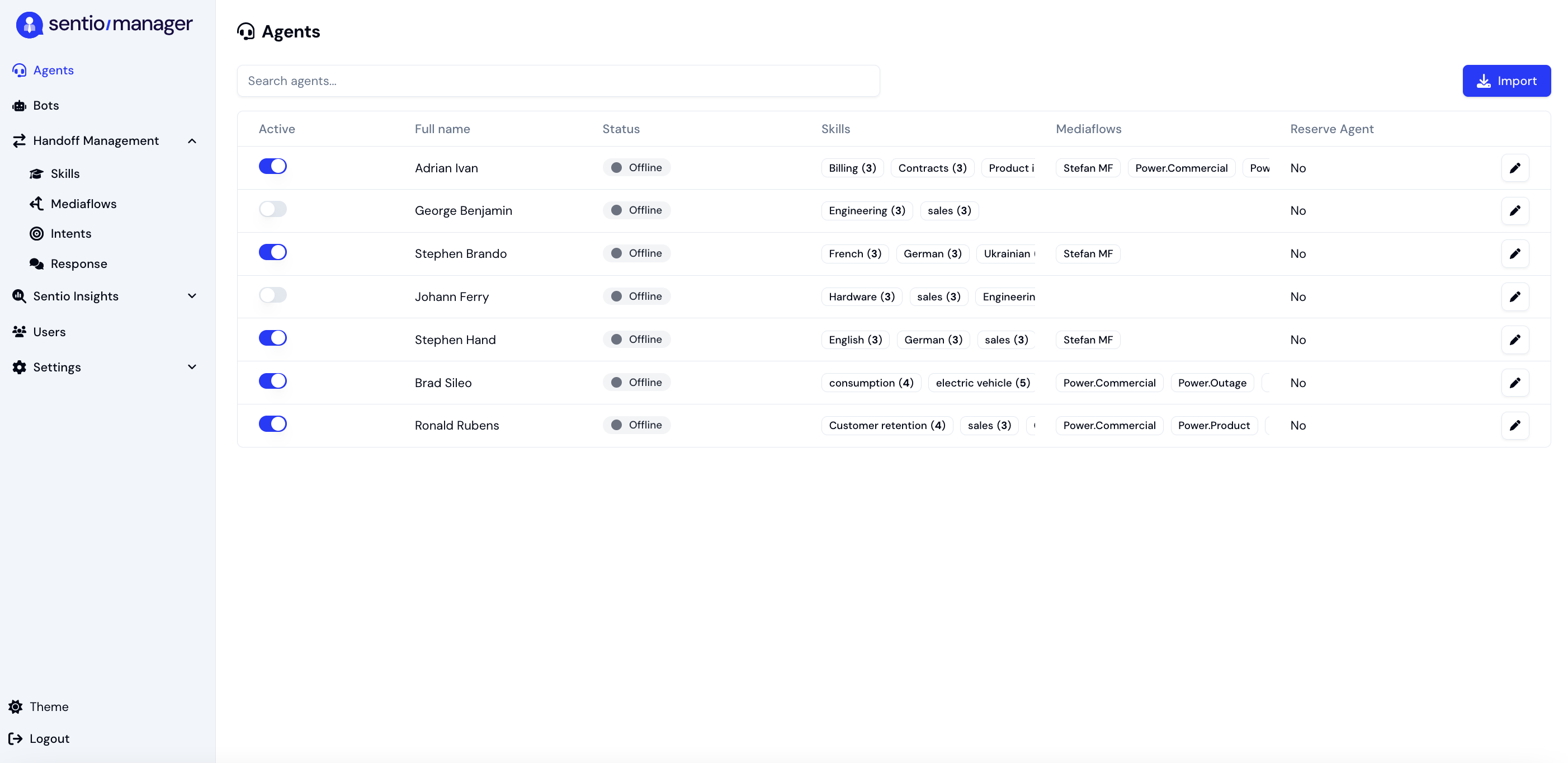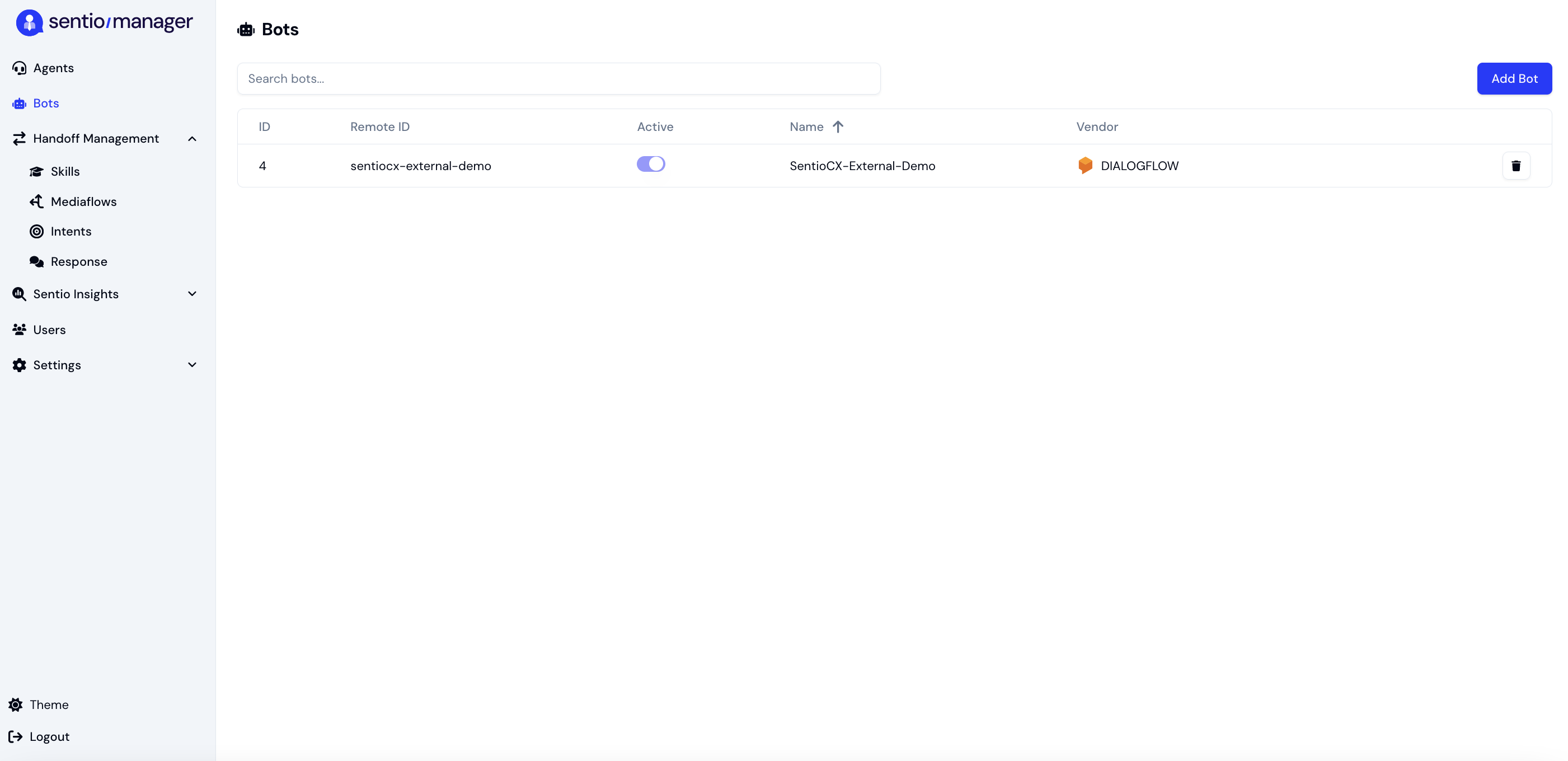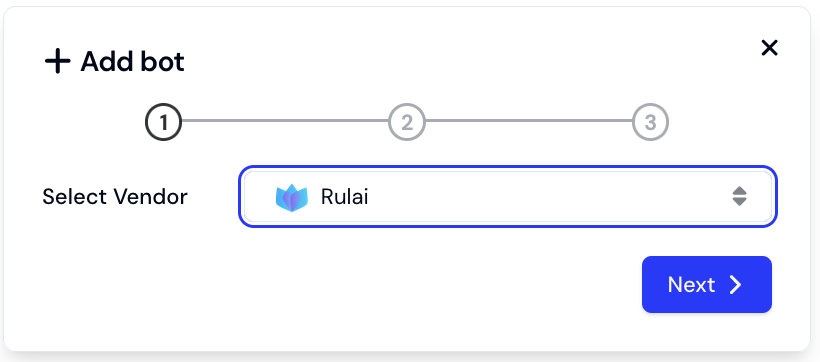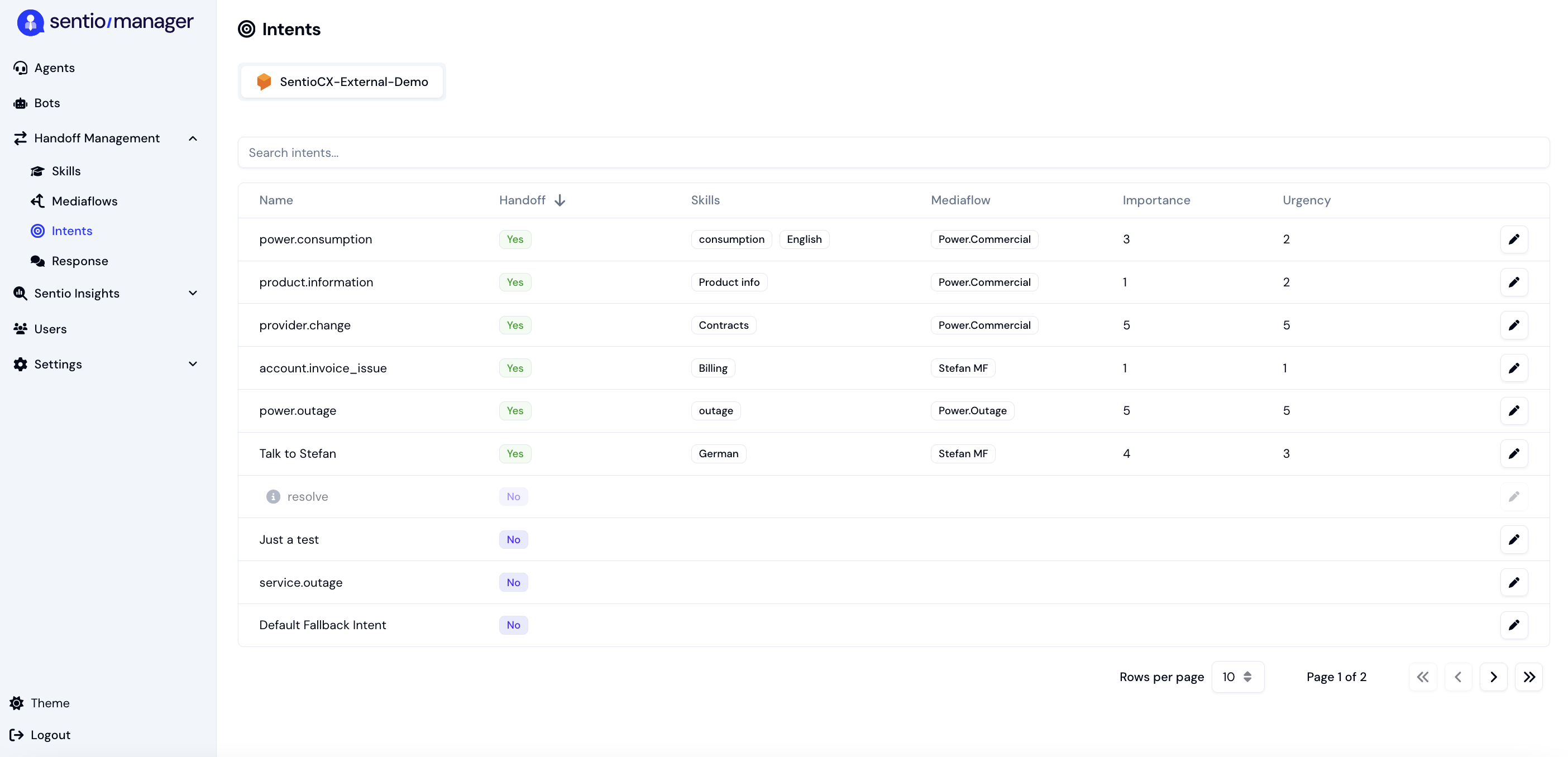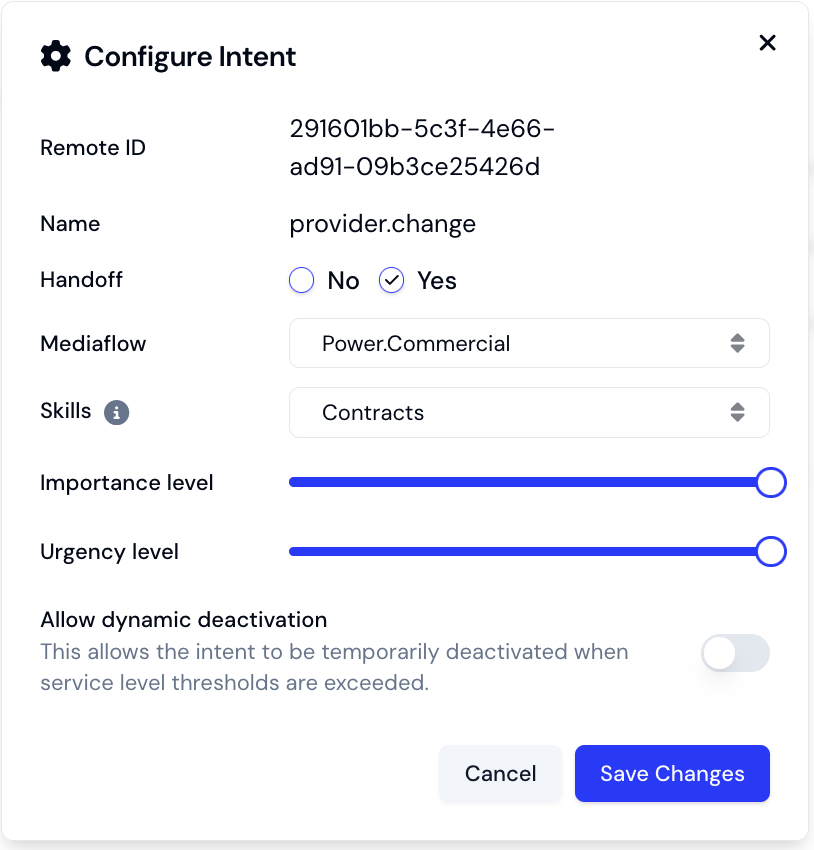Docs
Tenant Set-up
A crucial aspect of tenant management involves augmenting the existing CEC (Customer Engagement Center) or CCaaS (Contact Center as a Service) platform with capabilities from SentioCX.
SentioManager acts as the vehicle for this integration through initial staging/tenant configuration. It provides a native user experience and avoids configuration duplication from an existing CEC or CCaaS
platform. The ultimate goal is to ensure effective agent-customer pairings by matching the most adequate agents with customers, based on relevant intents (from a bot), skills, and proficiency levels.
Tenant configuration:
Click on the image to enlarge
When a CEC or CCaaS platform is already using skills, SentioCX will be able to add additional attributes such as proficiency level to indicate an agent’s level of expertise such as language fluency or technical expertise level, routing weight and capacity. When a CEC platform doesn’t have skills, SentioCX will be able to set up skills per agent.
Handoff Management
Hand-off Management: Includes critical components like intent classification (using automatically populated intents from the bot), customer profile classification and response management (including publication of predictive wait times). Intents are automatically populated from the bot and can simply be marked for a pro-active handoff.
Intent Classification
The Intent represents the reason why the Customer reaches out to Customer Service in the first place. It encapsulates the Customer challenge which needs addressing. The Intent is a first class citizen in the SentioCX Platform, everything revolves around Intents, from configuration, to routing, to reporting and analytics.
The source of Intents is the Chatbot. In SentioCX the Intents are enabled through a classification process:
- Intents are configured to trigger a Handoff
- Urgency and importance levels are specified
- Required Agent skills are configured
Allow dynamic deactivation
In the event that service levels are exceeded, we can automatically and temporarily provide self-service or follow-up for lower value/priority interactions (email, callback). This is done by automatically and temporarily de-activating ‘hand-off classification’ for selected intents. The reason why this is essential is to make room for critical conversations in order to create the highest impact on KPIs, resulting in an optimal CX (Customer Experience) and EX (Employee Experience).
